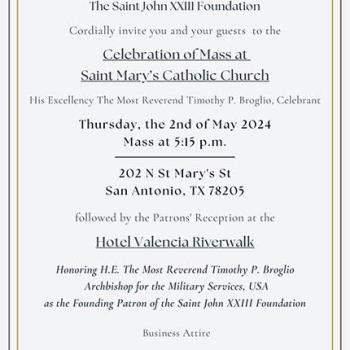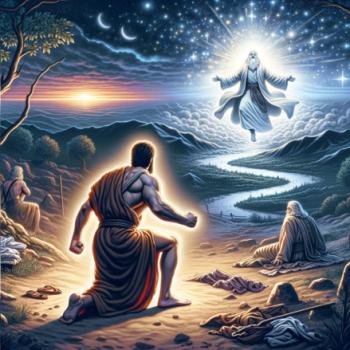Of course, there is a dark confusion here. If God had planned this from the beginning, how then could the Jews be held fully accountable for the death? Were they not merely puppets in the hands of the master puppeteer of the heavens? I hardly have time to unpack that conundrum in this brief article, but it is a huge issue that has plagued Christian theology for centuries.
Peter goes on to quote several Hebrew Bible sources to "prove" that the Jewish authorities should have known that Jesus was Messiah; their own texts, he says, make that fact plain. He assumes David is the author of the Psalms, hence the great David himself, the most important of all Israel's kings, spoke of Jesus at Psalm 15:8-11, which Peter quotes exactly from the Septuagint translation of Psalm 15 at Acts 2:25-28. Then Peter reminds them that David is dead; even as great as he was, he died; we can all see his tomb today (Acts 2:29). Yet, in 2 Samuel 7, God had promised to "put one of his (David's) descendants on the throne of Israel" (Acts 2:30). Then Psalm 131:11 is quoted to suggest that David was speaking of the resurrection of the Messiah, a resurrection that has now happened to Jesus with the power of God. Peter concludes this part of the sermon by a notation of Psalm 109:1: "The Lord (God) said to my Lord (Jesus in Peter's reading), 'Sit at my right hand until I make your enemies your footstool.'"
All of this is to say one clear and terrible thing: you Jews have murdered the Messiah of God, and the implication of Psalm 109's reference to "enemies" and "footstool" suggests that the Jews have become God's enemies, but soon they will get what they so richly deserve. For the next twenty centuries the Jews have indeed become all too often the "footstools" of triumphant Christian polemicists, who hounded them out of nearly every country of the world, from Germany to France to England to Spain to Russia, to name only the most well-known assaults. And no one can finally deny that the Nazi horrors, concluded by the Shoah, were the direct result of such potent attacks initiated in the pages of Luke's book of the Acts.
I would welcome a veil to be placed over these monstrous realities, but we must face them squarely. There is a deep irony that the next two Sundays offer a celebration of Native Americans, themselves the object of horrendous treatment at the hands of those who claimed rights to their land and culture, and Mother's Day, a celebration of the Christian Home, a place under severe pressure in a society struggling to find its way against all manner of assaults against its hoped-for stability. The implications of Peter's nightmarish sermon are all too evident among us even now. Whenever we decide that some group or other must pay for an action we deem cruel, whenever we find a victim to satisfy some debt we have determined needs paying, we run the risk of objectifying and caricaturing others, actions that can lead directly to their death. We cannot read Peter's sermon innocent of what has happened as a result of its preaching. We must not, lest we continue to play out its dreadful inferences.
Author's Note: I am glad to report that my novel, King Saul, has been published and will be available soon, first from the publisher, wipfandstock.com, and then from Amazon, perhaps next month. In two more months or so, a Kindle version will be available. I hope you will read it and enjoy it half as much as I enjoyed writing it.





